Rob Bell's Blog, page 20
April 24, 2017
Mental Toughness for Golfers – TRAINING CAMP
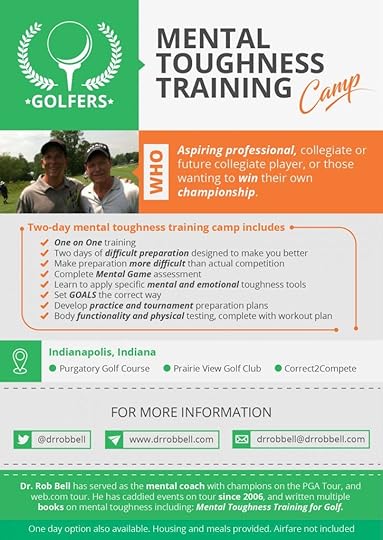

Mental Toughness for Golfers – TRAINING CAMP
Golfers looking to play your best when it matters the most? Schedule a one-one mental toughness training camp specifically designed to improve your preparation and game. We offer:
One on One training.
Two days of difficult preparation designed to make you better.
Prepare more difficult than actual competition.
Complete Mental Game assessment.
Learn to apply specific mental and emotional toughness tools.
Set GOALS the correct way.
Develop practice and tournament preparation plans.
Body functionality and physical testing, complete with workout plan.
PLUS A YEAR MEMBERSHIP FREE to Ring The Bell for Mental Toughness
Dr. Rob Bell is a Sport Psychology Coach who has worked with multiple winners on the PGA Tour, Olympic Medalists, USTA national Champion, and has caddied on tour. Interested in learning more than Mental Toughness for golfers. Check out RING THE BELL FOR Mental Toughness.

April 14, 2017
(INFOGRAPHIC) 5 Simple Action Steps for Injured Athletes
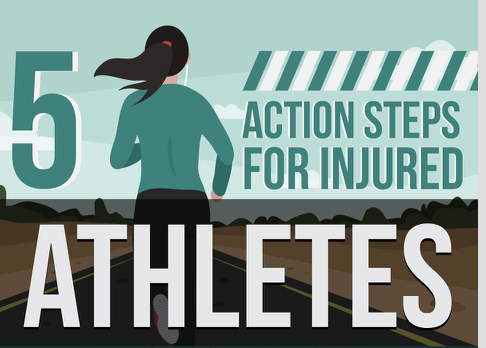
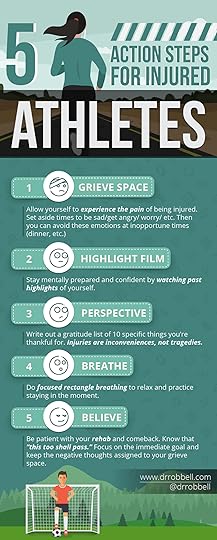
(INFOGRAPHIC) 5 Simple Action Steps for Injured Athletes
Grieve space-
Allow yourself to experience the pain of being injured. Set aside times to think about being sad/getting angry/ worrying/ etc. Then you can avoid these emotions at inopportune times (dinner, etc.)
This is Just ONE way to Build Mental Toughness. If you are interested in learning more Mental Toughness Techniques. Check out RING THE BELL FOR Mental Toughness.

Dr. Rob Bell is a Sport Psychology Coach. His company DRB & associates is based in Indianapolis. Some clients have included: University of Notre Dame, Marriott, and Walgreens. Check out all the books on Mental Toughness-

April 3, 2017
The WRONG WAY to Win the Locker Room


A team locker room is a sacred place.
Basically, what is said there, when you leave there, leave it there.
Sorry, but here’s the wrong way to win the locker room.
NewBuffalo Bills Head Coach Sean McDermott felt that setting the tone of the locker room was important.
Agreed
Coach Sean McDermott is all about “culture” and leading by example. He’s a 3:30AM fitness guy.
Agreed
He is a driven, hard-nosed, accountability coach whose locker room culture begins with him.
Agreed
Coach stated that “this is a business”, so he removed the pool table and video games from the locker room.
Disagree
Download BONUS- Two Awesome Ways to Increase TEAM CHEMISTRY
Players don’t care how much you know, until they know how much you care.
Hall of Fame coach, Bill Walsh, set up a fishing tournament amongst his players during pre-season. He stated, a “team that can laugh together, can get serious together.”
Hard nosed, two time Super-Bowl winning coach, Tom Coughlin, spent the very first day of a training camp by having a bowling tournament. He changed his tyrant approach because he “wanted his players to see him as his grandchildren did.”
Super Bowl Winning coach, Dick Vermeil was known for his “boot camp” practices and discipline, but only after he started to develop a relationship with his players did he finally reach the pinnacle.
Look, there is nothing sexier than discipline, accountability, hard-work, grit, perseverance, and a culture of excellence.
One does not get better by working less.
Click To Tweet
However, in order to win, coaches have to win their hearts as well. In order to do that, they need to win the locker room.
Here’s 5 ways to win the locker room
Download BONUS- Two Awesome Ways to Increase TEAM CHEMISTRY
Develop a TEAM culture-
Every coach would agree that when you have players willing to fight for one another, there is nothing more powerful. Practices should be difficult and demanding, but developing team chemistry also takes place in between practices and games. You hang out so much together, that either bonds or cliques get formed in various ways.
Developing a locker room where players can unwind, relax, be themselves, and hang-out is crucial. Who wants a locker room where players simply dash out after showering and changing?
A pool table or ping-pong table encourages players an outlet to bond over a competitive activity that is not directly related to their own sport. The Cornell basketball team that made the sweet sixteen and finished 29-5 all lived together and touted their Super Mario bros. and table-tennis competitions.
Allow the players to take ownership-
Jeff Van Gundy allowed all minor decisions like where to eat, which music and movie to play on the bus up to the players. He granted them a voice in their own culture.
Have a leadership council-
Teams and players that discipline themselves hold themselves accountable.
Click To Tweet
In all pick-up games, kids self-govern themselves. You can’t break the written and unwritten rules of the court and expect to be welcomed back. A leadership council of players should make decisions on certain disciplines that coach doesn’t have to. That creates more ownership among players and takes more off of the coach.
Orchestrate the cohesion-
Teams become cohesive over the task at hand (winning), or socially (togetherness). Ultimately, task-cohesion is king. However, these task-cohesive teams are only fostered through extremely strong peer-leadership.
Social cohesion is queen. Teams full of mutual respect for one another have more trust and uphold standards within the team. Usually, the best teams have BOTH task and social cohesion. These bonds can be enhanced through scheduled sessions intended to do so.
Foster organic cohesion-
Yes, it is a business. Winning is a habit. But, allow play to be a part of the culture. Allowing athletes to express themselves through free-play is as old as the cave-man days. We thrive on working hard toward a goal and also having fun along the journey.
I’ve been in the team locker room at the end of a season with such tears of joy from winning, because they all knew of the effort and sacrifice and bond. I’ve been in the other locker room as well, that tears flowed because the loss was so heartbreaking because of the sacrifice and bond.
If you’re in the game long enough, these moments will happen. That’s life.
The way to a winning team locker room begins way before these moments of joy or heartbreak. It begins with the culture of the team and finding ways to win the locker room.
Download BONUS- Two Awesome Ways to Increase TEAM CHEMISTRY
This is Just ONE way to Build Mental Toughness. If you are interested in learning more Mental Toughness Techniques. Check out RING THE BELL FOR Mental Toughness.

11 tested ways to get out of our comfort zone
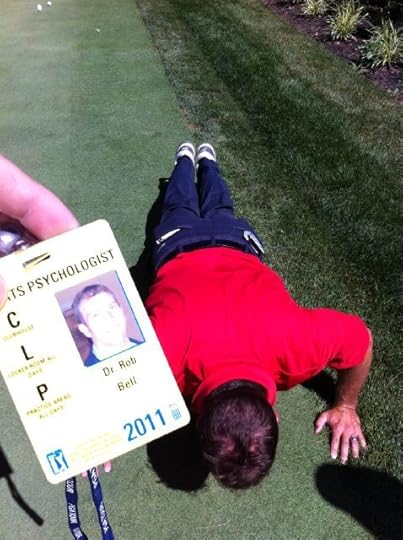
I’ve ran two marathons and I put everything I had into both. My best time was a respectable 3:21 and that was running six days & fifty miles a week with speed work. I kept track of every run and reviewed it the other day; it was intense.
We get nowhere until we get out of our comfort zone. Mental Toughness is not just physical. Most relate mental toughness to physical tasks because we can measure it and it is indeed difficult. However, we all can improve our mental toughness. We just need to get uncomfortable.
My 4th book on mental toughness was published specifically for parents. I write every single morning for 1-2 hours. It is uncomfortable and some days are worse than others. But, my belief is that they don’t give bestsellers away.
1. Want to vs. have to…
If we are not doing what we love to do, what’s the point? Not many people get better at things they don’t enjoy. Our mental toughness is aligned with our passion, perspective, and gratitude. If we dwell on the things that we don’t have, we are operating from a viewpoint of scarcity instead of abundance. Remember, we focus on negatives in the darkroom.
2. Start with the hardest…
One of the PGA Tour players that I worked with taught me tons about mental toughness. Before Scot Stallings won his 1st PGA Tour victory, we were at an event that changed the way I approach life. He had to complete a putting drill in order to leave the course. There was one putt that was unreal and I figured he would save the toughest putt for last. He pointed at the Rasputin of holes and said,“ I’m starting with that one!”
Tracy Thorsell is in her last year at the Naval Academy. She will graduate with a degree in electrical engineering and speaks five languages. She took Chinese in High-school because it was the toughest.
Too often we start with and only want the easy tasks. Get uncomfortable and build our mental toughness by starting with the hardest task. We’ll get confidence and get momentum from accomplishing the most difficult first.
3. Sit in a different seat & go a different route…
When I was a University professor, I had no seating arrangements, but people sat in the same seat every time. We seek comfort and we are creatures of habit. That is why we congregate around the same area and drive the same route. Go a different way is a simple way to engage the mind and get out of our comfort zone.
4. Be Honest…
I was once asked if I had seen a certain movie. I actually lied that I had because I wanted to be in on the conversation. Honesty with others is tough, but honesty with ourselves is way more difficult. Changing for the better is a good thing, however it requires honest self-assessment. Not many people can be honest, because it makes them vulnerable.
5. Connect w/ others…
Mushrooms and negatives grow in the dark. It takes little mental toughness to isolate. But, our condition changes with the books we read and the people we meet and interact with. Get out of the comfort zone by meeting one new person a day.
6. Suit up & show up…
A boxing coach, Jason Minnick, told me that the boxers who are mentally tough are the one’s that show up… after a beating. The toughest part is indeed showing up. Too often we allow one mess up or mistake to define us. It doesn’t matter how bad we messed up, learn from it, and get back on the path.
7. Don’t complain…
John Wooden said, “Don’t complain, whine or make excuses, your friends won’t need them and your foes won’t believe you.” Life without complaint means responding to situations and people, not reacting.
8. Face the fear & do it anyways…
I wrote NO FEAR: A simple guide to mental toughness because FEAR is the biggest thing keeping us from our goals. Everything we want in life is on the other side of that fear. The story that we tell ourselves either lifts us up or tears us down. Everyone is afraid, but few address it. Get out of the comfort zone and just do it, whatever your “it” is.
9. Trust others…
My friend Keith Tyner took his family on an R.V. trip out west. For every person he encountered and had a conversation, he simply gave them a little book reading light. Do you know how many people struggled with taking that small gift?
I hate trusting others, because it means I’ll may hurt. I hate asking for help because it means I’m stupid. That’s the story I tell myself that brings me down. The better story is I need to trust others because we can help each other. The odd thing is that no one wants to ask for help, but everyone wants to give it.
10. Pray & pray again…
Get uncomfortable by surrendering the things we cannot control. If prayer doesn’t’ work the first time, then pray again.
11. Trust your gut…
Our gut is our in-born smoke detector. It’s our GPS. However, it’s a tough choice whether we listen to it or not. I am convinced we are right more often than not when we trust our gut. However, we will still be wrong on occasion, we just can’t let our mistakes to dictate how we operate. When we trust our gut, it simply reflects that we are confident.
Dr. Rob Bell is a Sport Psychology Coach. His company DRB & associates is based in Indianapolis. Some clients have included: University of Notre Dame, Marriott, and Walgreens. Check out the most recent books on Mental Toughness-
March 26, 2017
Derick Grant, Harlem Globetrotter, & Microwave Success
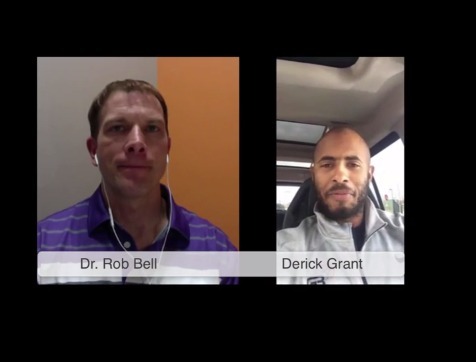
Derick Grant, Harlem Globetrotter, & Microwave Success
In this VODCAST episode- 15 minutes of Mental Toughness
How an Escalator changed his life forever and was a HINGE moment! (don’t miss this)
What nobody knows about being a globetrotter.
What is Microwave Success?
One huge technique to build Mental Toughness.
How can we spot it?
Visit Derick Grant
Dr. Rob Bell is a Sport Psychology Coach. His company DRB & associates is based in Indianapolis. Some clients have included: University of Notre Dame, Marriott, and Walgreens. Check out all the books on Mental Toughness- Visit here to Build Mental Toughness. Ring The Bell For Mental Toughness
March 17, 2017
How to Crush The Transitions in Life


How to Crush the Transitions in Life
If we use the bathroom 10 minutes a day, we will have spent over 6 months of our life in the bathroom.
The average person spends two hours a day watching T.V. (wow).
We will also spend about 1 year of our entire life just cleaning.
Dated research revealed that we spend over 2 years of our life merely waiting (traffic, lines in supermarket, etc.). Although, on-line apps have now changed our entire behavior by being able to pre-order. This is cool of course, but doesn’t help with our patience.
William Penn once said “Time is what we want most, but what we use worst.”
Since we spend so much time, we need to invest our time instead.
One way to build everyday Mental Toughness is to crush the transitions.
A transition is a process.
We can have major transitions, like changing careers, mid-transitions, such as waiting in an airport and minor transitions, like driving from the gym to work.
Crushing the transition is the BEST way to get BETTER. The goal of a successful transition is that we are in the best spot mentally when we arrive.
Here are 8 ways to crush the transitions
1) Evaluate-
Where am I right now and where do I need to focus? Do I need to relax more, address my business, gain more knowledge, or connect with others?
2) Breathe-
The transitions in life are the absolute perfect time to focus on our rectangle breathing. Get centered.
3) Listen to a podcast-
I drive a ton and while I’m paid to read, I also try to crush audio-books and podcast episodes. Martin Rooney, Jocko, and James Altucher are all killer.
4) Turn off the agitator-
The mental game is more about subtraction than it is addition. It is often about removing things that do not makes us better.
There is a lady who constantly talks on her phone while on the treadmill (Yeah, she doesn’t work hard). I HATE IT. But, you know what, that’s not her problem, that’s mine. I just have remove myself from the situation.
5) Make a Call-
Reach out and contact a friend, coach, colleague, family member, or business associate. Make connection with others a goal of your transitions.
6) Remove the phone-
When we have a minute of downtime we pull-out the phone and check twitter, facebook, instagram, whatever. I do this too much and It becomes a habit. Unfortunately, it’s become a HUGE distraction and time spender.
7) Gratitude list–
Write out 10 people, places, or things that you are grateful for.
8) Pray-
And if that doesn’t work, Pray again. God usually answers, “ask me again tomorrow.”
This is Just ONE way to Build Mental Toughness. If you are interested in learning more Mental Toughness Techniques. Check out RING THE BELL FOR Mental Toughness.

March 10, 2017
Warning: Graphic Display of Persistence
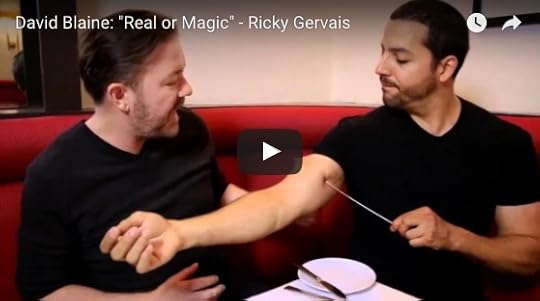
Every morning, I tweet Patience & Persistence….They are my reminders and the keystone to mental toughness and success. But, what does persistence actually look like?
Warning: This is a graphic display of persistence.
This is NO MAGIC Trick- this is real!
David Blaine revealed that this “trick” took 10 years to accomplish. He actually created a fistula , which is a hollowed out area of scar tissue through his arm where the needle is inserted, that’s why there is NO BLOOD.
For 10 years, David would take a needle through his arm in the same spot and increase the damage every so slightly. He drilled a hole through his arm to perform a magic trick- That is a display of persistence!
Dr. Rob Bell is a Sport Psychology Coach. His company DRB & associates is based in Indianapolis. Some clients have included: University of Notre Dame, Marriott, and Walgreens. Check out all the books on Mental Toughness-

March 3, 2017
(Video) Mental Toughness to Stop in a 1/2 Ironman?

Mental Toughness to Stop in a 1/2 Ironman?
I finished a 1/2 ironman and was speaking at event reveals how we never know what or who will be our Hinge Moment. The question still remains: Would you have stopped? This event changed my life and led to writing the new book: How to Crush a 1/2 Ironman in less than 2 weeks.

Dr. Rob Bell is a Sport Psychology Coach. His company DRB & associates is based in Indianapolis. Some clients have included: University of Notre Dame, Marriott, and Walgreens. Check out all the books on Mental Toughness-
February 24, 2017
(INFOGRAPHIC) 5 Practical Tips to Be The Best Assistant Coach
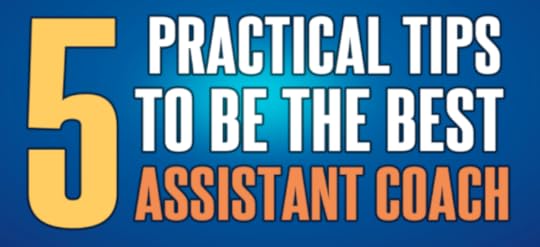

5 Practical Tips to Be The Best Assistant Coach
Information- Convey knowledge, not just problems to your head coach; or bring solutions to the problems. Being the best assistant means to support the head coach in all decisions and personnel. The best job that you have is the one that you’re in.
Dr. Rob Bell is a Sport Psychology Coach. His company DRB & associates is based in Indianapolis. Some clients have included: University of Notre Dame, Marriott, and Walgreens. Check out all the books on Mental Toughness-
February 17, 2017
Avoid This “Why” to Build Mental Toughness


Avoid This “Why” to Build Mental Toughness
I was a good athlete when I was young.
But I changed.
I’m not sure exactly when it happened, maybe I lost a race, had an error in the field, or struck out. But, I started to think way too much, and I would get in my own way.
No-one could really ever help me either, which is one reason why I became a Sport Psychology coach. I was stuck, frustrated, didn’t know how to work hard, and had off the field issues that caused emotional pain.
I slacked, and people got better than me.
I drank, and people got better than me.
I partied, and people got better than me.
Then, it was all over.
Falling off a cliff will do that.
I was never in touch with my “why” until after my playing days were over. After college, my “why” became to prove something to myself. It was to prove to myself that although I squandered younger years, I wasn’t going to quit. If you ever get a second chance at life, you’ve got to go all the way.
So, I ran marathons, broke a 20-minute 5k, benched pressed 300 lbs, made a hole-in-one, completed a toughmudder, swam under 1:00 in the 100 freestyle, and finished a 1/2 Ironman.
I’ve heard most elite performers “why’s.” “Prove people wrong, Because I love it, Be a role model, it’s fun, Be outside, Escape from life, Be fit, Being in the moment, The feeling of the actual movement, Competitiveness, To beat others, Make my parents proud, Winning.”
I think some are stronger than others and I am not sure which WHY is the BEST.
I do believe however that there is ONE WHY we need to avoid to build Mental Toughness. This “why” is toxic, malicious, and contagious. If we don’t recognize and treat it, it becomes necrotic to our entire self.
The worst “why” anyone can have is: I’m GOOD at it.
The path toward greatness at any level is difficult. But, our best changes as we get better and tenacity becomes more important than talent. Those with a why of I’m good at it, simply can’t achieve their full potential.
Burnout in any performance field is has a why of I’m GOOD at it. If they’re GOOD at something, but do not have a deeper why, then at some point, they become trapped.
Most people that are GOOD, have their identity, future, and sometimes career so wrapped up in their performance, that they can’t quit. Quitting would bring severe consequences. So, they stay in performance mode without a “why” and the disease takes hold.
When trapped, they resent their sport or job, can’t work hard, frustrate their peers and coaches, and since they can’t quit, they find other ways to cope that make them feel better. The better performer that they are, the more trapped and frustrated they feel.
If you’re going to be GOOD at something, but not love it, be good at math or science, not performance.
3 Tips for Your “Why”
Develop your why as your talent develops, before it’s too late.
Re-adjust and re-focus your why as you progress in life.
Our “why” changes over time. I knew athletes who were so driven to prove people wrong, (which is a powerful motivator) but after they had success, it became an “okay, now what” moment? They had to re-discover their own why.
Your own “why” a few years ago may not be your why today.
Stay in touch with your why. If you know your why, you can come-up with any “how.”
Dr. Rob Bell is a Sport Psychology Coach. His company DRB & associates is based in Indianapolis. Some clients have included: University of Notre Dame, Marriott, and Walgreens. Check out all the books on Mental Toughness-






